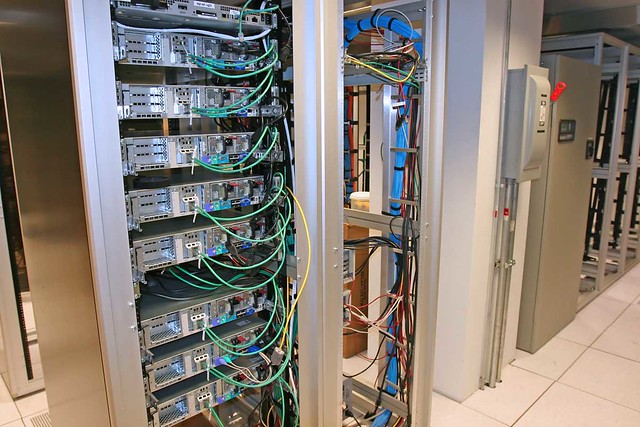Cloud computing is rapidly changing the face of business IT. Companies both big and small are increasingly making the move towards cloud virtualization. From greatly simplifying the world of IT support to cutting overheads, having the ability to centralise company IT in a virtual cloud format offers many advantages. By using the cloud, companies are also able to reduce their hardware and software requirements, making it a truly cost-effective IT solution.
However, with the current widespread concern over global warming,
companies are trying to reduce their carbon footprints. Because of this, many
businesses are asking the question; is cloud computing environmentally
friendly? Here are some ways in which moving to the cloud can help make
companies that much greener.
Reducing Power Consumption
With the IT industry consuming a large chunk of the world's energy, it
is vital that companies take a more eco-friendly approach to computing. One of
the main ways in which cloud computing allows companies to reduce their power
demands is by decreasing their hardware requirements. When IT systems are
virtualized in the cloud, companies only need an internet connection in order
to access their resources, meaning there is no need for the likes of in-house
servers. Being able to get rid of servers and the cooling equipment they
require can dramatically reduce company power consumption. This large-scale
virtualization enables companies to retain the same IT functionality with less
energy needed.
In-house servers can consume a lot of power.
Efficient Data Centres
On paper, being able to get rid of in-house servers is a great step
towards more environmentally friendly computing. However, some may ask whether
or not the problem is merely being shifted around instead of being solved.
After all, cloud service providers still require a lot of raw computing power
in order to provide IT virtualization. This is a completely valid and important
question to ask, however, the cloud is a lot greener than it may seem.
Cloud data centres usually endeavour to use the most power-efficient
hardware possible in order to minimise their environmental impact. Instead of
every company housing their own inefficient hardware, cloud servers consolidate
computing resources into effective and efficient data centres. Cloud servers
may require more energy than a single company, but cumulatively, the energy
consumption is significantly reduced. With cloud service providers striving to
use the most eco-friendly hardware available, companies can rest assured that
they aren't simply masking the issue of going green.
Cloud service providers try to use the most energy-efficient hardware.
Limiting Resource Redundancy
One of the main problems when companies run their own servers for IT
services is idle time. Almost no companies are going to be using 100% of their
computing power 100% of the time. In reality, only a fraction of the server's
capabilities will be harnessed over a given period, meaning most of the time
the server is idle and not being used for anything productive. Companies are
still drawing on power even when their servers are idling, meaning that extra
energy is simply going to waste.
One of the great things about cloud computing is the flexibility of
resource allocation it confers. Companies are only given those extra resources
when they are actually needed. By using only what is needed, idle time is
minimised along with waste power consumption. Being able to scale resources
quickly and efficiently is of great benefit to both companies and the
environment.
Conclusion
With the impact that the world of IT has on the environment, companies
need to do their part to reduce their carbon footprints. With great efficiency
and minimal energy waste, cloud computing offers a viable solution to enable
companies to become more eco-friendly. From cleaner hardware to proper resource
allocation, cloud computing is making the world of IT a greener one.
By Bradley Houston
Author Bio: Sally Rogers is a writer at Cheeky Munkey IT Company,
offering posts on many fields of IT including cloud computing, network security
and web hosting services.


Nice blog about and it seems to be good source of information about Cloud Computing for Business . Thanks for sharing this post.
ReplyDelete